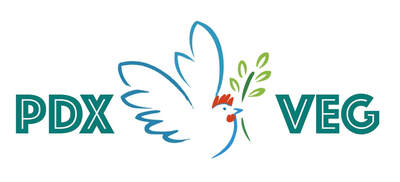Vitamin B12 is produced by micro-organisms and is not found in appreciable amounts in any vegan foods. The only reliable vegan sources of B12 are foods fortified with B12 (including some plant milks, some soy products and some breakfast cereals) and B12 supplements.
Very low vitamin B12 intakes can cause anemia and nervous system damage. Virginia Messina, MPH, RD adds that this nerve damage can result in a host of problems—everything from depression and mental confusion to tingling and numbness in extremities to a loss of balance and even paralysis. The anemia is reversible with vitamin B12 therapy. The nerve damage is usually reversible, but not always.
Unfortunately, the deficiency rates of vitamin B12 are quite high even in the general population: 62% among pregnant women, between 25% and 86% among children, 21-41% among adolescents, and 11-90% among the elderly, and the rates of deficiency were higher among vegetarians and vegans, according to this study, that concluded that vegetarians should take B12 supplements.
According to Jack Norris, Registered Dietitian and Executive Director of Vegan Outreach, despite the overwhelming evidence, some vegan advocates still believe that “plant foods provide all the nutrients necessary for optimal health,” and don’t address vitamin B12 when promoting the vegan diet. Others emphasize that humans need only small amounts of B12 and that it can be stored in the body for years, implying that there’s nothing with which to concern ourselves. While it’s true that at the time many people become vegan, they have enough B12 stored in their livers to prevent overt B12 deficiency for many years, markers of B12 deficiency usually start to increase abnormally within a few months. Here is more detail on Jack’s recommendations for B12 supplementation.
If you are still in any doubt about the need to supplement with vitamin B12, please read this Open Letter from Health Professionals and Vegan Organizations on What Every Vegan Should Know about Vitamin B12.
Please be sure your vitamin B12 intake is adequate so that you can be a healthy vegan and an effective advocate for being vegan!
Very low vitamin B12 intakes can cause anemia and nervous system damage. Virginia Messina, MPH, RD adds that this nerve damage can result in a host of problems—everything from depression and mental confusion to tingling and numbness in extremities to a loss of balance and even paralysis. The anemia is reversible with vitamin B12 therapy. The nerve damage is usually reversible, but not always.
Unfortunately, the deficiency rates of vitamin B12 are quite high even in the general population: 62% among pregnant women, between 25% and 86% among children, 21-41% among adolescents, and 11-90% among the elderly, and the rates of deficiency were higher among vegetarians and vegans, according to this study, that concluded that vegetarians should take B12 supplements.
According to Jack Norris, Registered Dietitian and Executive Director of Vegan Outreach, despite the overwhelming evidence, some vegan advocates still believe that “plant foods provide all the nutrients necessary for optimal health,” and don’t address vitamin B12 when promoting the vegan diet. Others emphasize that humans need only small amounts of B12 and that it can be stored in the body for years, implying that there’s nothing with which to concern ourselves. While it’s true that at the time many people become vegan, they have enough B12 stored in their livers to prevent overt B12 deficiency for many years, markers of B12 deficiency usually start to increase abnormally within a few months. Here is more detail on Jack’s recommendations for B12 supplementation.
If you are still in any doubt about the need to supplement with vitamin B12, please read this Open Letter from Health Professionals and Vegan Organizations on What Every Vegan Should Know about Vitamin B12.
Please be sure your vitamin B12 intake is adequate so that you can be a healthy vegan and an effective advocate for being vegan!
Proudly powered by Weebly
